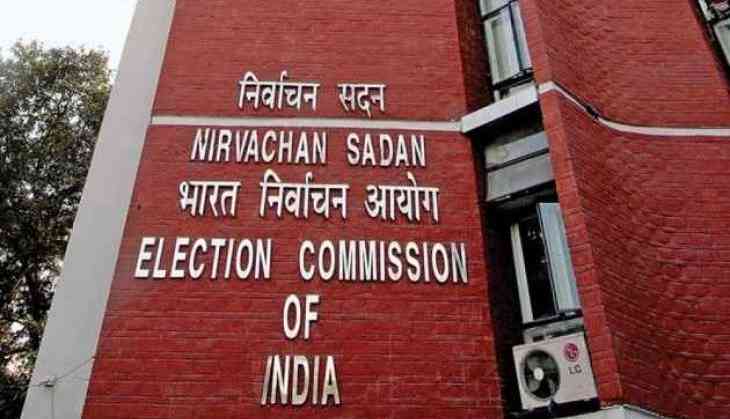The pessimism about the future role of political parties stems from the deep political-business nexus that is well known in the country. This perhaps could be a major reason for a good section of the educated class dissociating itself from any political activity due to wrong policies or deep-rooted corruption or lack of moral values of our political parties.
 Dhurjati Mukherjee I INFA Service
Dhurjati Mukherjee I INFA Service

The campaigning and polling for 2019 General elections is over. Those who cast their vote would have done so in the hope for a better future, but those who didn’t may have a reason i.e. it hardly matters which coalition occupies the seat of power as their interest gets over shadowed by that of the rich and powerful. Unfortunately, India’s State machinery is influenced by the business houses, which have over the years managed to get their interests being taken care of. To put it a little bluntly, money power has and does play a critical role in manipulating politicians and bureaucrats by the corporate.
The pessimism about the future role of political parties stems from the deep political-business nexus that is well known in the country. This perhaps could be a major reason for a good section of the educated class dissociating itself from any political activity due to wrong policies or deep-rooted corruption or lack of moral values of our political parties. Over the years policies have by and large been seen as being framed to make life better for the rich and the upper middle class through increased investment in metros while neglecting rural areas.
And, it is not just the political parties alone but the top judiciary too may have lately become a victim. A bench led by Justice Arun Mishra recently expressed shock at how an order was altered against builder Amrapali, saying it indicated that some influential corporate houses had managed to penetrate the judiciary to manipulate the court staff. However, it is reassuring that the bench ordered a probe into the allegations that “fixers and middlemen” tried to manipulate judicial proceedings.
This apart, an earlier order passed by a bench in Anil Ambani contempt case was reportedly changed after which two court staffers were sacked and a criminal case was lodged. Another example was a CJI bench expressing surprise as the Rafale judgment review not being listed as per schedule.
Clear pointers to the extent the rich and powerful are willing to go to? Worse, it’s the governments which fail to prioritise their goals, neglecting the aam janta (public). Take the case of the health sector, which subsequent governments have failed to heal. Though the meagre allocation for health has been highlighted by the undersigned as well as other commentators, a recent report reveals the warped priorities that authorities have.
A study published in International Journal of Drug Policy, reveals that current alcohol consumption patterns cost the national economy more than what the government spends on health every year. It found that after adjusting tax receipts from alcohol sale, the economic loss from adverse effects of alcohol consumption would touch 1.45 per cent of the GDP. For comparison, the government’s annual expenditure on health is around 1.1 per cent of the GDP, which may have increased a little presently.
Thus, it comes out that the government has an eye on revenue generated from taxes of alcohol sale without bothering about its effects on health, particularly of the poorer sections. And the study estimated that the economic burden of alcohol-related health conditions by 2050 would be a staggering $3228 billion, more than India’s health budget in 2018.
Then again, let us take the case of manual scavengers, most of which belong to SC or ST groups. According to the 2011 census, there are over 26 lakhs dry latrines in India as opposed to toilets with flush, though these may have changed marginally with the ‘toilet revolution’ through Swachch Bharat. However, a recent manifesto of the Safai Karmachari Andolon, an organisation working for the rights of manual scavengers, demanded a Right to Life (RL-21) card to ensure free access to education, health care, dignified employment and livelihood and other benefits as per Fundamental
Rights given to all citizens under Article 21 of the Constitution. It also demanded pension of Rs 6000 per month. But none of the major political parties considered it worthwhile to even speak of their demands in the course of their campaigning.
The two examples cited suggest that whoever comes to power would follow the same set of policies, with little concern for the under privileged. So if the government doesn’t deliver, do we start looking towards an increased private investment in the economy? Perhaps not, as the private sector, as is known, will increase investments only when it is assured of huge profits, directly or indirectly. The health sector for that matter has seen a growth in private hospitals, but these go beyond the reach of the common man.
It is feared that due to ongoing farm and rural distress the trend in Indian planning is bound to witness jobless growth and migration of rural populace to urban areas in search of better livelihood. A reorientation in planning strategy geared towards the rural sector and a sharp focus on the needs and demands of the masses is what should be the aim of the new political dispensation.
It must address the question of how interests of the poor and economically weaker sections can be taken care of. Unless there is an understanding of ground realities and a political will, the much-needed shift in planning and development will elude the nation. Unless the leadership starts thinking in the true Gandhian spirit of working for the community with sincerity, dedication and honesty!
The communists, who demonstrate the maximum community feeling, are nowhere in the new government that may be formed. While the NDA with BJP as the main partner has been perceived to be pro-business by many, the Congress is rethinking strategy of how to woo the masses with its ideas of minimum income guarantee, right to health and other basic amenities, which it should have done long ago.
However, the Congress’ suggestion for setting up a separate permanent National Commission on Agricultural Development & Planning is worth a look. It seeks to advise the government on how to make agriculture viable, competitive and remunerative while repealing the Agricultural Produce Market Committee Act which regulates markets in States, and may have a favourable effect on the rural sector.
With a new government set to assume office within the next few days, the political parties are bound to make an analysis of what went wrong or right for them. And while there is no dearth of analysts within the parties, the policies need a re-look to meet the economic and social challenges. Perhaps, a study of manifestos of all put together could offer an outline of how to fill the developmental gap.
More importantly, the violence and hatred that was manifest during the election campaign must be overcome and sincere efforts made to integrate the society to serve the interests of each and every community. Is it asking for too much?


